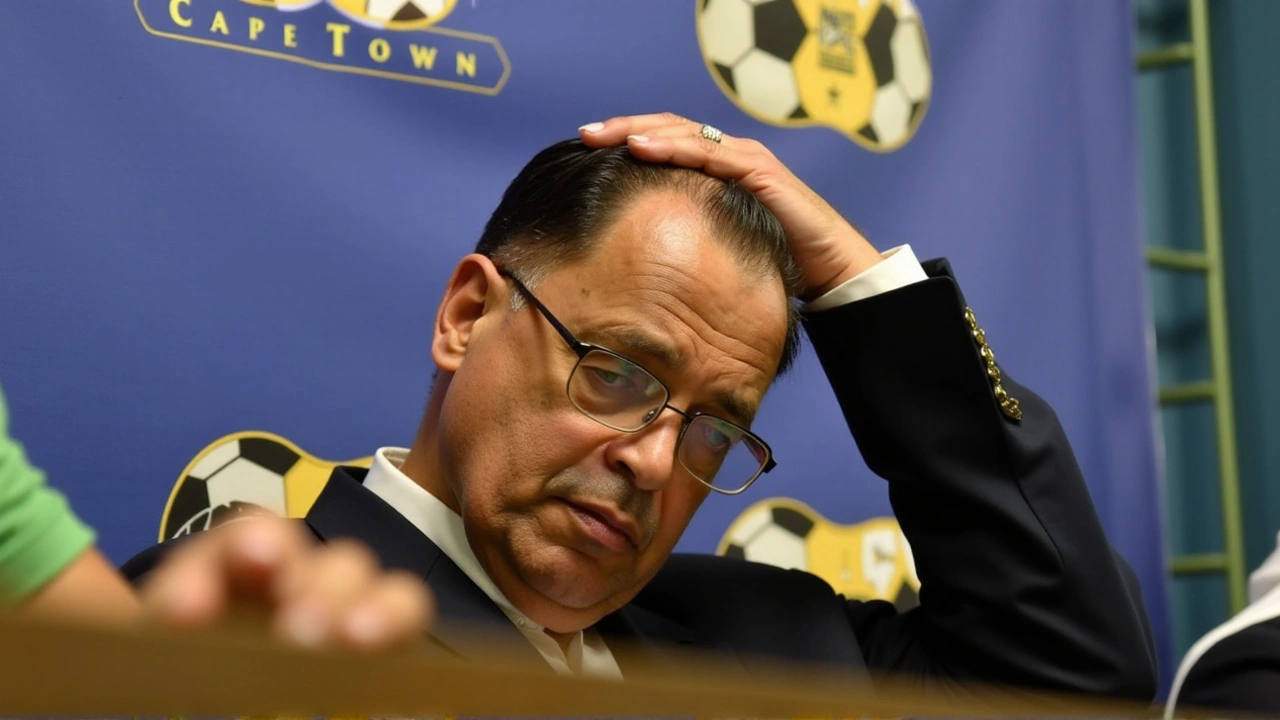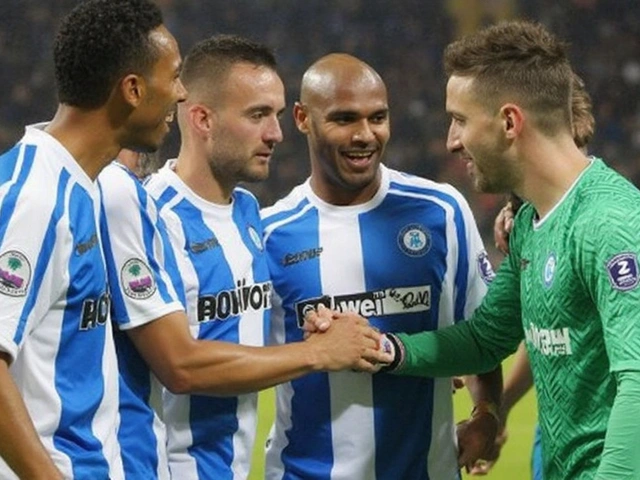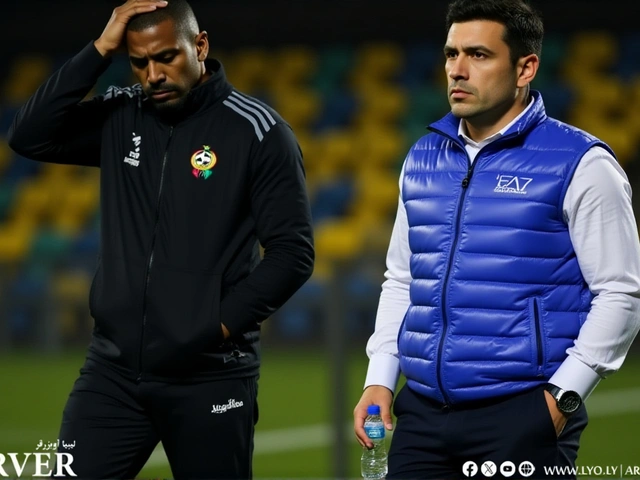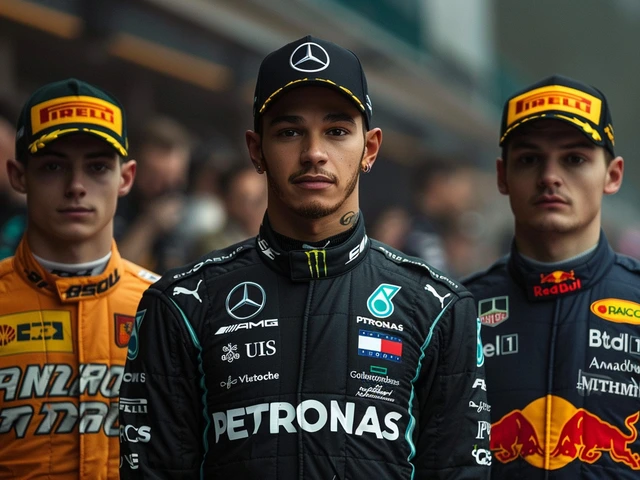The Arrest and Allegations Against Danny Jordaan
Danny Jordaan, a towering figure in the world of South African soccer, finds himself at the heart of a legal maelstrom after being arrested on charges of fraud and theft. The case against him is significant not only due to his current role as the president of the South African Football Association (SAFA) but also because of his vibrant history with the sport, particularly his fundamental role in bringing the 2010 FIFA World Cup to South African shores. Allegations have emerged that Jordaan diverted approximately R1.3 million ($72,372) of SAFA funds into services of a personal nature, including hiring a PR firm and a security detail. This is a substantial sum of money, and its alleged personal use has caused an uproar within the sporting community and beyond.
The Investigation Unveils Grim Realities
The saga took a grim turn when the Special Investigating Unit (SIU) undertook a raid at the SAFA offices back in March. This operation was anything but low-key, with agents collecting numerous electronic devices and files that could potentially hold the key to unraveling a web of alleged corruption. The atmosphere in the offices that day was reportedly tense, shadowed by a sense of impending revelation. The arrest of Jordaan, along with another official and a businessman, signifies a pivotal juncture in terms of accountability and justice. Their scheduled appearance in the Palm Ridge Magistrates Court marks the beginning of what could be a series of judicial processes set to send ripples through both local and international soccer communities.
A Complex Backdrop and Storied Career
Jordaan's entry into the spotlight didn't happen overnight. He is widely respected for his efforts that culminated in South Africa hosting the 2010 FIFA World Cup, a monumental event in the country's sporting history. This achievement not only required shrewd sports administration but also compelled a level of diplomacy and international negotiation skills that few possess. Therefore, the recent accusations weigh heavily, possibly tainting a legacy that had previously inspired many within the sport. Understanding this background is crucial to comprehending the impact of the current accusations against him. It creates a juxtaposition between the respect he earned over the years and the grave accusations he's now facing.
The Broader Impact on South African Soccer
Corruption within sports organizations such as SAFA isn't merely a local issue; it reverberates throughout the soccer world, affecting partnerships and trust at an international level. Such scandals contribute to a narrative of mismanagement and misuse of funds that could deter future investors or sponsors from participating in what should be a positive development of the sport. This is especially concerning for South Africa, a nation that has long aspired to become a powerhouse in global soccer. Allegations such as these throw a wrench into the works, challenging the credibility and operational integrity of a key sporting organization.
Looking Ahead: The Path to Justice
As the dust settles from Jordaan's arrest, the attention now shifts to the upcoming court proceedings. There will undoubtedly be much scrutiny on how the judicial system handles this case, not only for the sake of justice but also for the implications it has on reforming the governance structures of SAFA. It remains to be seen whether Jordaan and his co-accused will be able to provide a defense that satisfactorily addresses the claims against them. Importantly, these proceedings might pave the way for broader reform within SAFA, potentially redefining its financial governance and measures that empower transparency.
The Role of the Special Investigating Unit
The SIU's role in this case has been pivotal. According to police spokesperson Katlego Mogale, the arrest and charges are fruits of a labor-intensive investigation characterized by a thorough examination of seized materials from the SAFA office. This shines a light on the capability and assertiveness of law enforcement in tackling sports-related corruption in South Africa. Investigations of this nature can often be complex, mired in layers of bureaucracy and confidentiality agreements. The outcome of their findings will play a central role in either vindicating Jordaan or solidifying the charges against him, further impacting SAFA's reputation and functionality.
A Cautionary Tale for Sports Governance
This scandal stands as a cautionary tale for organizations and leaders within the global sports community. Effective governance, clear accountability structures, and ethical financial management are not just ideals but necessities for sustaining the sport's integrity. The specter of fraud and theft, especially by those in senior positions, threatens to overshadow the achievements made through sports administration. It highlights the constant need for vigilance and due diligence in the administration of funds meant to support the growth and development of the sport.
Concluding Reflections on Danny Jordaan's Arrest
The arrest of Danny Jordaan is not merely an isolated legal incident; it is indicative of broader systemic issues within the administration of soccer in South Africa. As the narrative continues to unfold, fans, players, and stakeholders alike watch intently. The road to resolution may be lengthy and complex, but the hope is that these proceedings will ultimately lead to a renewal of integrity within the South African Football Association. The emphasis will now fall on restoring trust, an endeavor as formidable as securing a World Cup but just as necessary for the sport's future in the nation.






